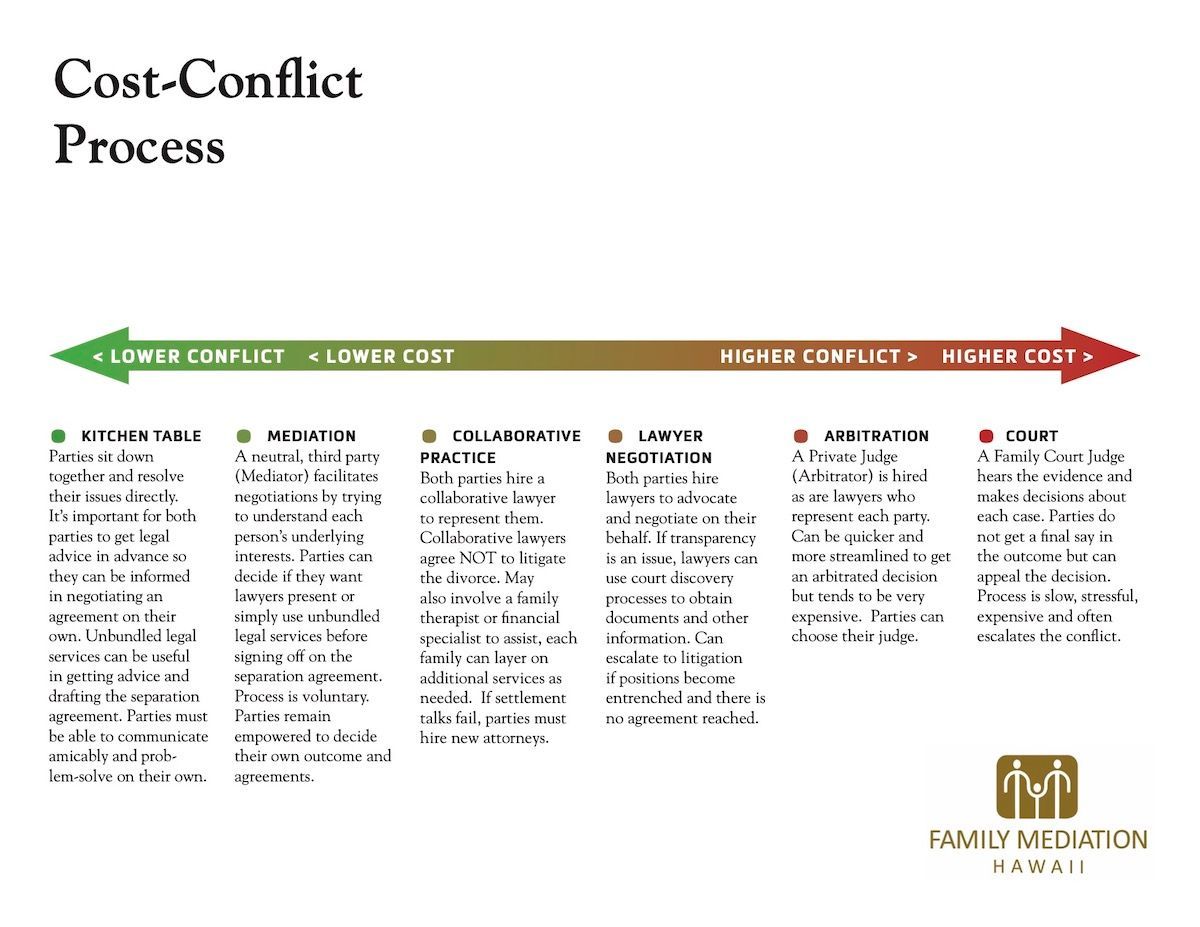Top Reasons to Mediate
Top Reasons to Mediate

When facing the difficult process of divorce, many couples find that mediation provides a better path forward compared to traditional litigation. Mediation allows you to privately work through the terms of your divorce with your spouse outside of court, guided by a neutral third-party mediator. Litigation can be expensive, combative, and leave major decisions up to a judge.
Key advantages of the mediation process include:
- Confidentiality - Unlike public court proceedings, mediation takes place in a private setting, allowing parties to candidly discuss sensitive personal matters like finances, child custody, and intimate relationship details outside of the public eye. This confidentiality protects families' privacy.
- Efficiency - Divorce mediation generally happens much faster than litigation. You're able to work through issues based on your schedule, rather than the court docket, and finalize a settlement far sooner.
- Cost Savings - With mediation, parties avoid the steep costs of each hiring a divorce attorney for repeated court appearances over an extended period. A single mediator's fees are substantially less expensive, especially if the couple can reach an uncontested agreement. If both parties decide to bring an attorney to mediation, initially the cost is greater initially as you are paying three professionals, but parties generally reach an agreement faster which can decrease the overall cost.
- Greater Adherence to Agreements - When you've actively participated in crafting your divorce settlement, you're more invested in upholding the agreed-upon terms moving forward. Agreements reached through compromise tend to stick better than orders imposed by a judge.
- Creative Solutions - Judges are bound by laws that can be rigid when resolving divorce issues like asset division and child custody arrangements. Mediation allows you and your spouse more flexibility to develop customized solutions tailored to your unique situation.
- Parties Retain Control - In litigation, a judge who doesn't truly know the details of your circumstances makes major decisions about your divorce. With mediation, you and your spouse retain control over the outcome through negotiation and compromise.
- Better Communication - The mediation process itself helps foster more productive communication between divorcing spouses. With the mediator's guidance, you'll develop skills for conflict resolution and constructive dialogue - something that's invaluable when co-parenting.
For couples seeking an amicable exit from their marriage, divorce mediation presents a less costly, less combative, and more personalized means of effectuating the dissolution while protecting privacy and promoting healthy post-divorce family dynamics












